This is going to be a really quick post about getting VMware tools running using openSUSE. As mentioned previously, I am using virtual machines quite a bit lately and I had a need to install LabVIEW for Linux. I have used Linux a bit, but ran into all sorts of issues. The aim of this blog post is to help anyone out who has the same problem and also serve as a reminder to me when I need to go through the process again.
Installing openSUSE was straight forward, just follow the defaults. The only change I had to make was disk size and memory allocation in the VMware settings.
Once installed, the first stumbling block was to install VMware tools. This is not as straight forward as you would think. There are a few dependencies that are needed and these must be installed manually. These include GCC, make and the kernel header files. This is not made clear while installing VMware Tools.
Open a terminal and run uname -r and uname -m. This will print the kernel name and machine name.
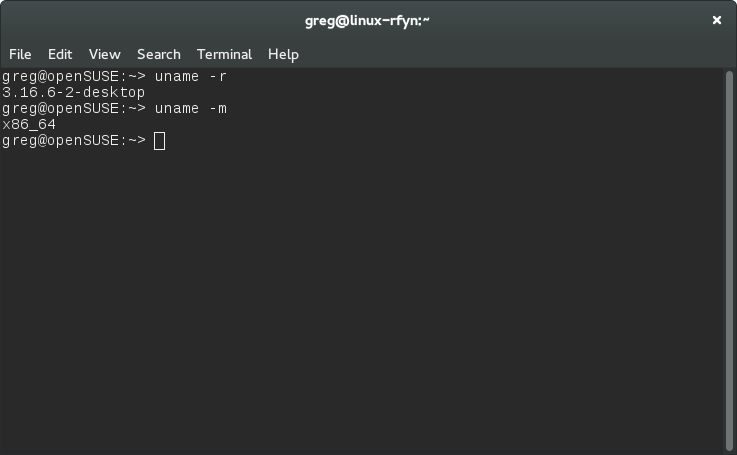
Next, open Settings > YaST > Software Management. Search for ‘kernel-source’ and then under the Versions tab, select the version that was listed in the above step. In my case, I selected 3.16.6-2.
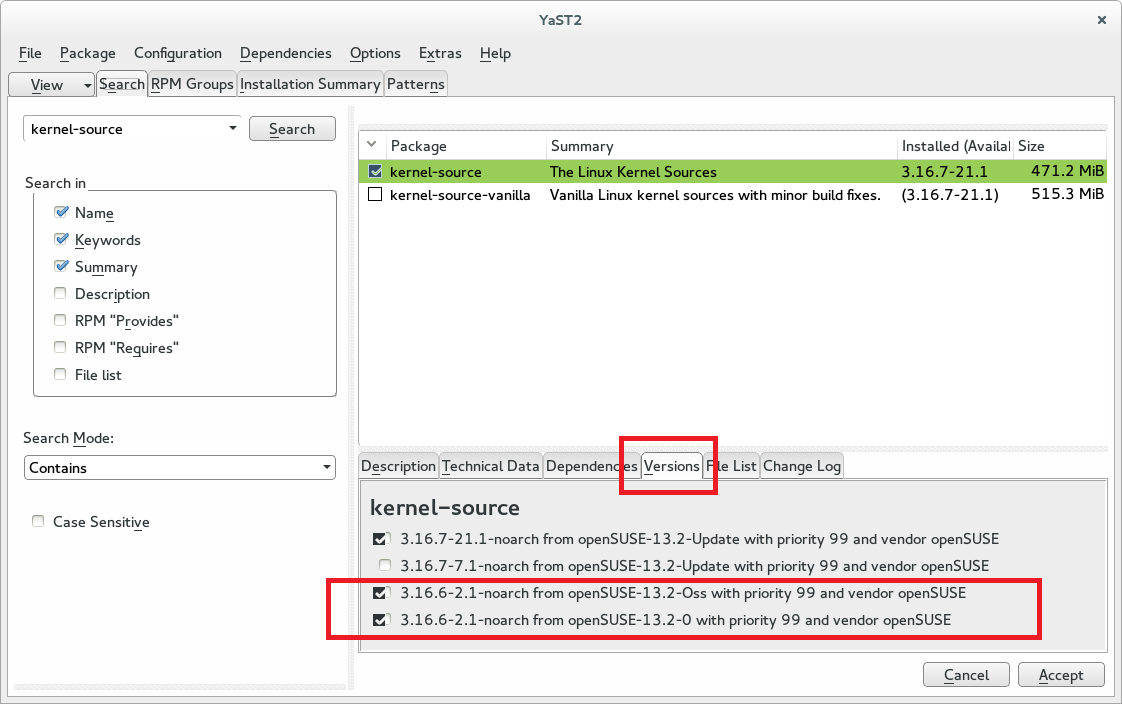
Repeat this step for ‘kernel-desktop’ and ‘kernel-desktop-devel’
Next install ‘GCC’ and ‘make’ using the YaST as explained above. Once everything is installed, reboot.
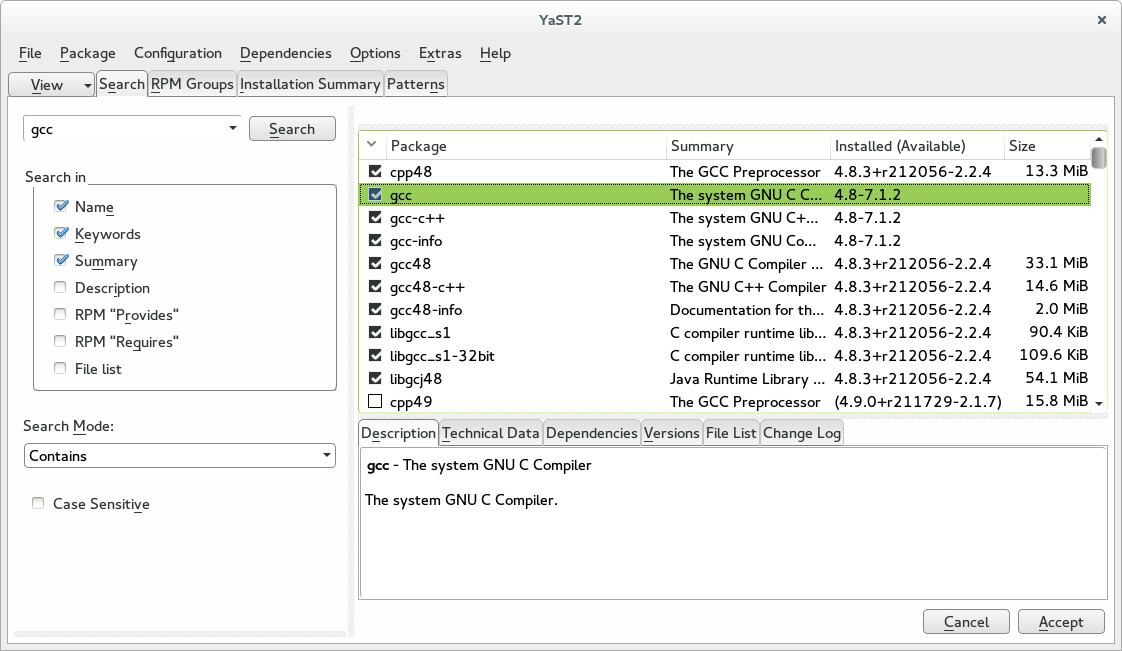
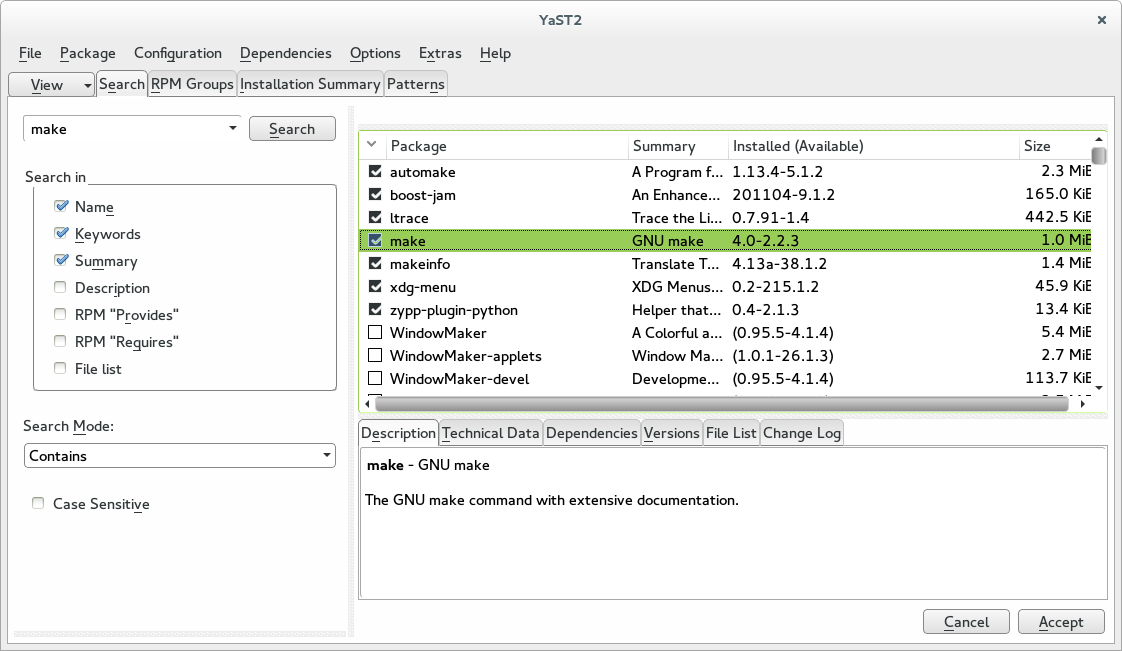
Open a terminal and execute the following command. ls /usr/src/linux-3.16.6-2-obj/x86_64/desktop/include/generated/uapi/linux/
This will show the location of the kernel header that VMware Tools will look for.
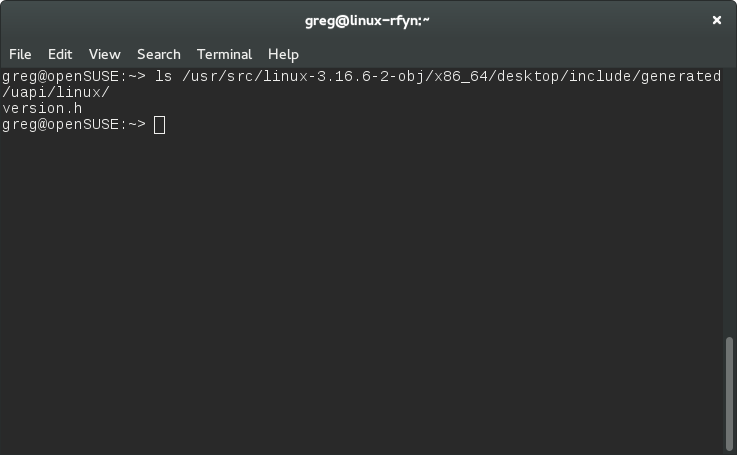
Make the directory where VMware will look for for the kernel header. mkdir -p /lib/modules/<uname -r>/build/include/linux and copy version.h from the above step into this directory. You can also create a symbolic link, but I have not tested this.
Now extract the tar file from VMware Tools disk that is mounted and run sudo ./vmware-install.pl. Follow the prompts and it should install OK. Reboot and everything should not work.
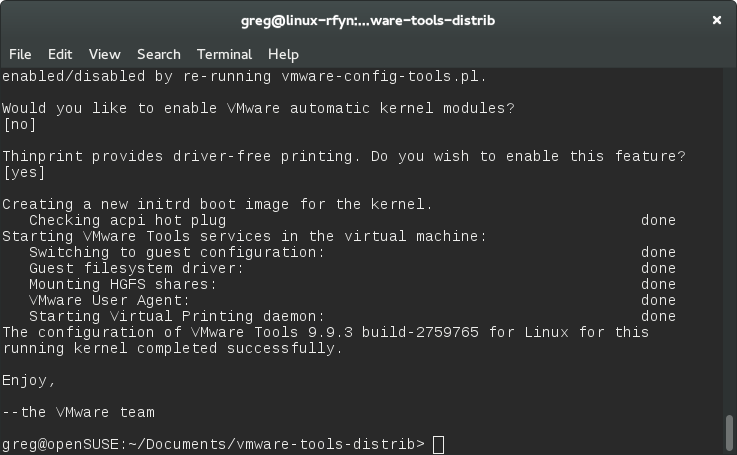
While the virtual machine is power off, enable a shared folder. This will be automatically mounted when the OS boots.
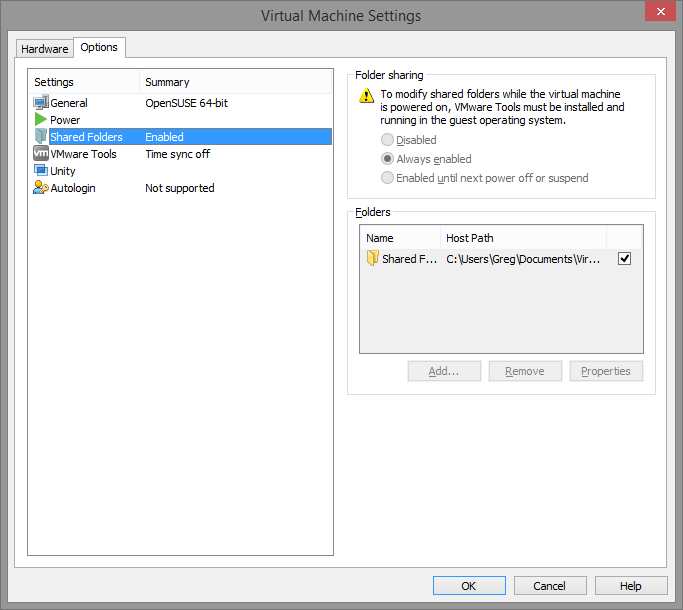
Boot the virtual machine and open a terminal. If everything is set up correctly, you will notice that the shared folder has already been mounted. ls /mnt/hgfs/Shared\ Folder/openSUSE/ will show your shared folder. You will need to change the names depending on your set up.
I have created a symbolic link (short cut) in my Documents folder to the mount directory. This is not needed, but I find it cleaner.
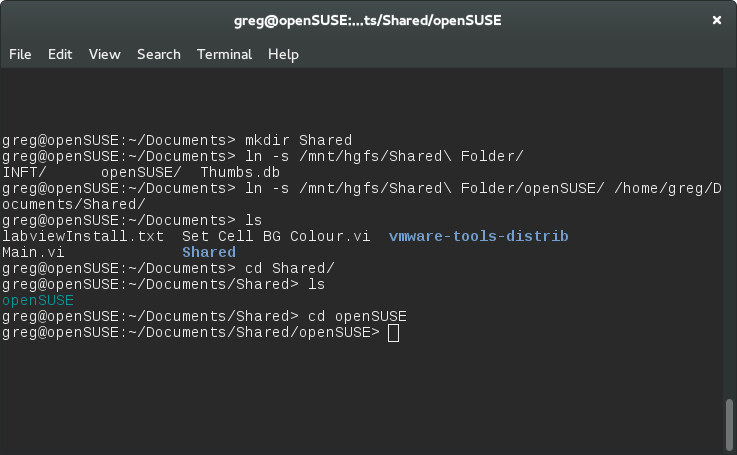
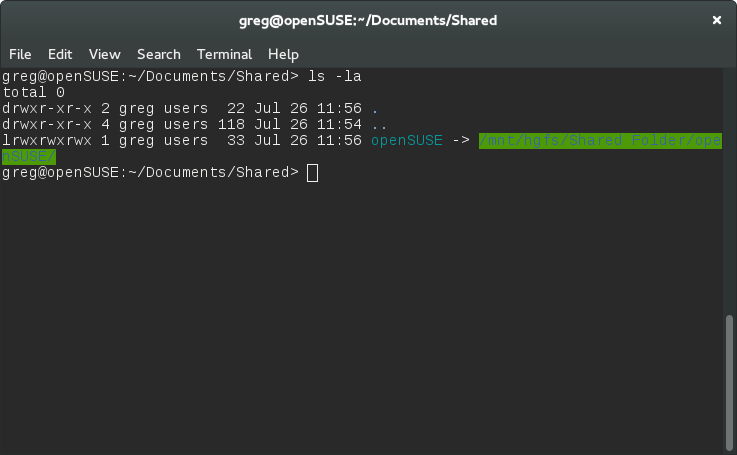
The next step is to get LabVIEW for Linux installed. That shouldn’t be too much of an issue, I hope!
Greg